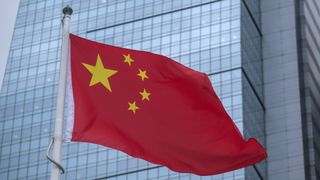People's Bank of China brags about crackdown on the 'pseudo-gold exchanges' of crypto
The CCP does not like the idea of decentralised currency one little bit.

China is in the early years of a battle to regulate tech it doesn't like, and one area of especial focus has become crypto. This is because China was at one point ground zero for crypto-mining operations in particular and the industry boomed there before the regulators began to get a grasp on it: but once the CCP began taking notice of crypto, it didn't like what it saw one bit.
One year ago China made cryptocurrency transactions illegal and now the People's Bank of China has issued an update via the country's popular WeChat platform (thanks, The Register). It's naturally full of praise for our good friend Xi Jinping's leadership, and covers several areas of finance as well as crypto, with what seems to be pretty disparaging language: at one point referring to crypto markets as "pseudo-gold exchanges" which is pretty funny.
All quotations attributed to the bank here have been through a machine translation and lightly edited for sense.
The People's Bank of China says it has been "comprehensively cleaning up and rectifying the financial order" with regards to bitcoin in particular, referring to the successful completion of "special rectification of Internet financial risks." If you're wondering what a special rectification is, the bank is talking about the shutdown of "nearly 5,000 P2P online lending institutions".
The P2P element is crucial in why the CCP dislikes crypto: peer-to-peer trading is inherently hard to control. This financial note's overall theme is about banking stability and how secure China's financial system is: all of which is what you'd expect the CCP's bank to say about the CCP's economic policies, of course. P2P trading is not stable in this macro sense, it's hard to regulate, and this is a country that wants top-down control over the systems its citizens use, particularly financial ones.
The bank says it's continuing to "crack down" on what it terms "domestic virtual currency trading speculation", and goes on to say that "China’s domestic bitcoin trading volume has dropped significantly in the world." This notably doesn't address how bitcoin mining has been affected. The CCP's policies have definitely had an impact on this but, per the Cambridge Bitcoin Electricity Consumption map, the country is still responsible for just over 20% of bitcoin electricity consumption.
Still, the bank reckons that "the disorderly expansion and savage growth momentum have been effectively curbed." It vows to continue the war against crypto's "pseudo-gold exchanges" and to "eliminate the regulatory vacuum".
The biggest gaming news, reviews and hardware deals
Keep up to date with the most important stories and the best deals, as picked by the PC Gamer team.
The truth is that the situation remains much messier than the bank would ever let on, but it is always the done thing to write about how wonderfully well Xi Jinping and the CCP's policies are working. The crypto 'ban' itself remains a hot topic, with plenty of crypto assets still located in China and legal cases ongoing (good luck with that, Chinese crypto fans). And it's only one part, albeit a big one, of the CCP's wider efforts to control elements of the technology that it fears could become too large to effectively control (such as Tencent, which in recent years has been methodically brought to heel a few times).
With apologies to Pravda: bitcoin production in China is not, in fact, at record levels. But it continues, whatever the Central Bank of China may say, and the battle to control it is far from over.
Rich is a games journalist with 15 years' experience, beginning his career on Edge magazine before working for a wide range of outlets, including Ars Technica, Eurogamer, GamesRadar+, Gamespot, the Guardian, IGN, the New Statesman, Polygon, and Vice. He was the editor of Kotaku UK, the UK arm of Kotaku, for three years before joining PC Gamer. He is the author of a Brief History of Video Games, a full history of the medium, which the Midwest Book Review described as "[a] must-read for serious minded game historians and curious video game connoisseurs alike."
Most Popular





